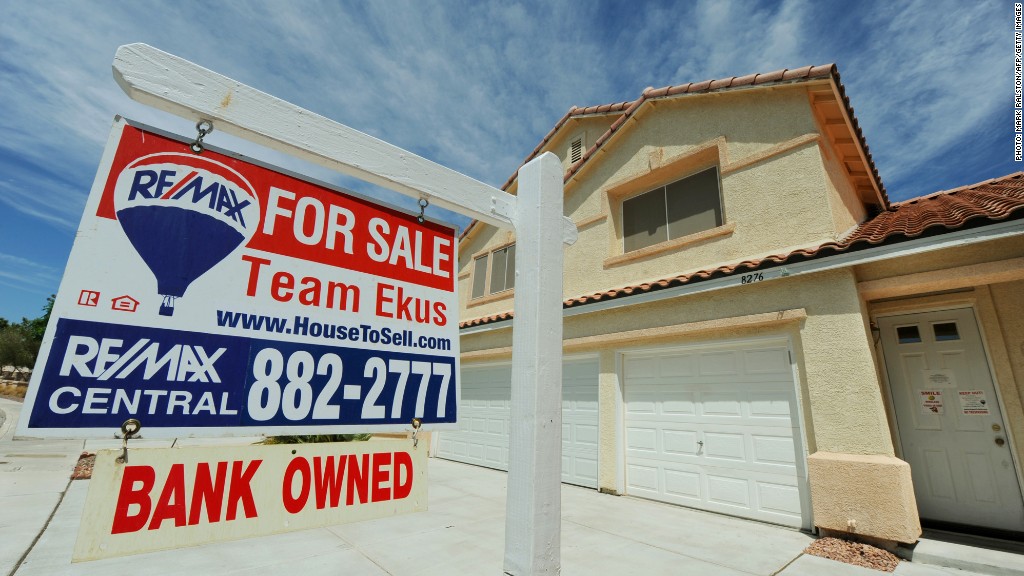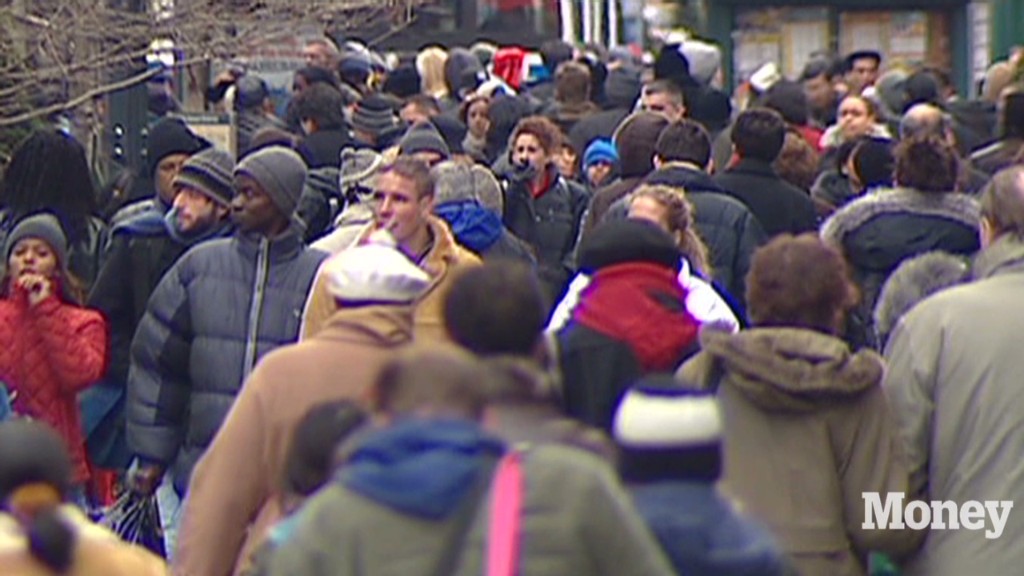
A growing number of mortgage borrowers are keeping their heads above water, according to a report from RealtyTrac.
The company reported Thursday that 9.3 million properties, or 19% of all homes with mortgages, were "deeply underwater" in December, meaning borrowers owed at least 25% more on their mortgage than the home was worth. That's down significantly from 26% of all homes with mortgages, or 10.9 million properties, last January, RealtyTrac reported.
A recovery in home prices has certainly helped to turn around the fortunes of many homeowners. The average U.S. home price jumped nearly 14% year-over-year through October (the latest data available), according to the S&P/Case-Shiller home price index. That has added thousands of dollars to the average home's value.
An increase in home equity typically means fewer foreclosures, said Daren Blomquist, a spokesman for RealtyTrac. "Negative equity is the foundation that foreclosures are built on, but you need another event -- a job loss or illness, for example -- to trigger a foreclosure," said Blomquist.
Related: Was my home a good investment?
The more deeply underwater borrowers are, the more likely they are to conclude that it makes little sense to continue to pay off their loans when money is tight. "It takes away their motivation to save their properties," said Blomquist.
They also have one less financial asset to tap into should they hit a financial rough patch.
And it makes it harder to sell the home. Borrowers typically have to do a "short sale," which is subject to the approval of their lender. If they can't get a short sale approved, they could end up in foreclosure.
Even though far fewer people are underwater on their homes than last year, it doesn't mean the foreclosure crisis is completely over.
Related: 5 Biggest housing market comebacks of 2013
"There are still millions of homeowners who are in such a deep hole that it will take years for them to regain their equity," Blomquist said. "The longer these homeowners remain in a negative equity position, the more likely that foreclosure will become the path of least resistance for them."

The states with the highest percentage of deeply underwater homes in December were Nevada with 38%, Florida (34%), Illinois (32%), and Michigan (31%). Metro areas where borrowers are still struggling to get above water include Las Vegas (41%), Orlando, Fla., (36%), Detroit (35%), Tampa, Fla., (35%), Miami (33%), and Chicago (33%).
Related: Million-dollar housing markets
On the other end of the spectrum, the number of equity-rich homeowners -- those with at least 50% equity in their homes -- grew significantly by the end of 2013. Blomquist said the number of equity-rich homes rose to 9.1 million, or 18% of all mortgaged homes, in the last quarter of 2013 compared with 7.4 million, or 16% of homes, three months earlier.
In Hawaii, 36% or mortgage borrowers were in this equity-rich position. New York, California, Montana, and Maine also claimed a high percentages of these borrowers.


